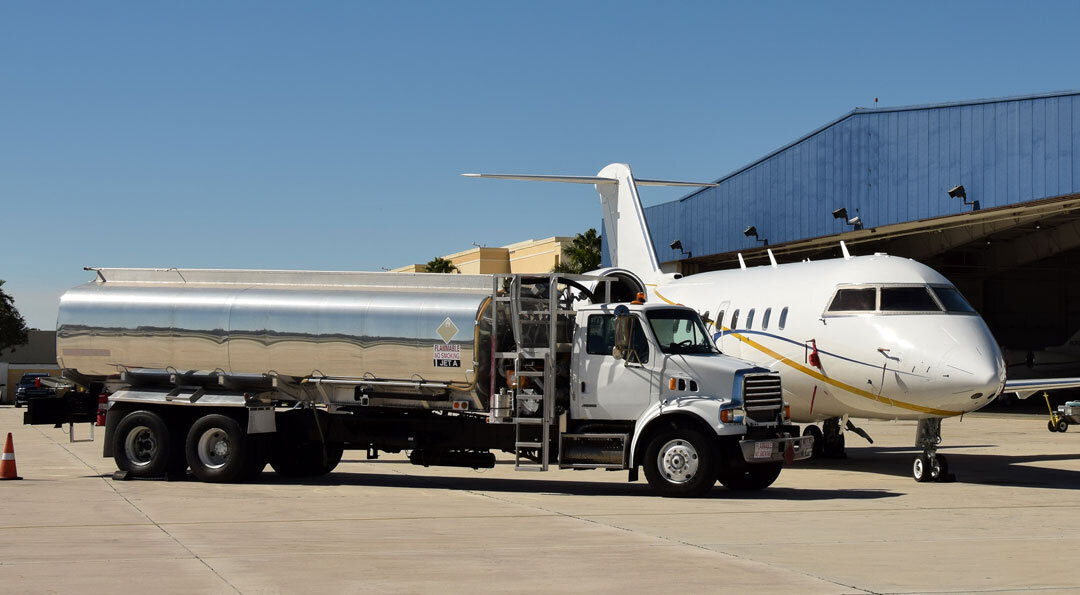Axiom Aviation Offers the Essentials on Sustainable Aviation Fuels and the Long-Term Cost and Operational Implications

The shift from traditional jet fuels to sustainable alternatives is gaining momentum. Today, emerging fuels are poised to redefine the standards of private aviation.
Balancing the freedom and convenience of private jet travel with environmental responsibility is an opportunity to lead the industry forward. The development of advanced fuels and propulsion systems is central to this transformation, promising to reshape every facet of private jet operations, from infrastructure and regulation to long-term costs.
The Dawn of a Greener Era in Private Aviation
Private aviation has long been known for luxury and efficiency. It offers a level of convenience and personalization that commercial travel cannot match.
At the same time, there is a growing interest in how private aviation can align with broader sustainability goals. This shift in awareness is encouraging the industry to explore new approaches without losing sight of its core strengths.
Fuel technology is becoming a central part of this exploration. Developments in sustainable fuels and new propulsion systems are gradually influencing operational logistics, infrastructure planning and long-term costs for private flight.
What Are Sustainable Aviation Fuels (SAF)?
The most immediate and impactful change in the industry is the growing adoption of sustainable aviation fuels (SAF). These are non-petroleum-based fuels produced from a diverse range of renewable feedstocks, including used cooking oil and non-edible crops.
One of the greatest operational benefits of SAF is its nature as a “drop-in” fuel. This means it is compatible with existing aircraft engines and airport refueling infrastructure, requiring no costly modifications. Operators can blend it with conventional jet fuel, immediately reducing net carbon dioxide (CO2) emissions by up to 80% over the fuel’s lifecycle compared to fossil-based fuels. Major manufacturers and operators are increasingly forming partnerships with fuel producers to expand the availability of SAF.
To bridge the gap while physical supply chains develop, many operators are utilizing book-and-claim systems. These systems enable them to purchase SAF credits from a producer at one location while still fueling their aircraft with conventional jet fuel elsewhere, thereby contributing to the overall reduction of emissions in the aviation system.
Despite these advantages, significant challenges remain. SAF production is currently limited, representing less than 1% of global jet fuel consumption, and it costs significantly more than traditional fuel. Expanding the necessary distribution infrastructure to make SAF readily available at private terminals worldwide requires substantial investment.
However, the long-term outlook is promising. As production scales up, costs are expected to decrease. Government incentives such as tax credits and blending mandates are accelerating this trend, while growing demand for private travel sustainability will continue to drive the market forward.
Electric and Hybrid Propulsion in Aviation
The next frontier is the electrification of flight. While a fully electric long-range private jet is still years away, electric private jets and hybrid systems are rapidly progressing. Prototypes for short-range aircraft are already undergoing test flights, and advancements in battery capabilities are steadily improving their viability.
The operational advantages are compelling. Electric propulsion systems produce zero tailpipe emissions, significantly reduce the noise footprint of an aircraft and have lower maintenance costs due to fewer moving parts. The reduced noise is particularly important for accessing airports in or near urban centers with strict noise regulations.
The primary hurdles are the current limitations of battery technology, which restrict range and payload. Additionally, building a global network of charging infrastructure at airports and achieving regulatory certification are complex processes. Still, electric and hybrid propulsion are expected to become feasible in the near future and popular for short-haul private routes and for enhancing regional connectivity.
True Zero-Emission Flight Through Hydrogen-Powered Aircraft
Looking further ahead, hydrogen aviation technology offers the promise of true zero-emission flight. When produced using renewable energy (“green hydrogen”), its only byproduct during combustion is water vapor. This technology has the potential to power longer-range flights than purely electric systems, making it a compelling alternative for long-distance travel.
Hydrogen power promises to revolutionize aircraft design and deliver profound lifecycle emission reductions. However, the challenges are immense. Storing liquid hydrogen on an aircraft requires cryogenic temperatures and specialized high-pressure tanks, which impacts aircraft design and weight.
Ensuring safety, developing scalable production methods and building out entirely new airport refueling systems are also monumental tasks. Industry experts project that viable hydrogen-powered private aircraft may not enter service for another decade or more, but the long-term potential for this green aviation technology is undeniable.
Infrastructure and Regulatory Readiness for Emerging Aviation Fuels
The transition to new energy sources will require a massive overhaul of ground infrastructure. This includes developing SAF blending facilities, installing megawatt-level electric charging stations and constructing airport hubs for hydrogen production storage and refueling.
Geographic disparities will likely emerge, as major international hubs are more likely to adopt these technologies faster than smaller regional airports. This evolution will demand unprecedented collaboration among governments, aircraft manufacturers and flight operators to ensure a smooth and standardized deployment. Public-private partnerships will be crucial for funding these capital-intensive projects. In addition, creating aligned international standards for charging ports, hydrogen nozzles and SAF blend certifications is essential to avoid developing a fragmented global system where an aircraft fueled in one region cannot be serviced in another.
Simultaneously, the regulatory landscape is shifting. International bodies, such as the International Civil Aviation Organization (ICAO) and regional authorities, including the European Union Aviation Safety Agency (EASA) and the Federal Aviation Administration (FAA), are implementing stricter sustainability mandates. The Carbon Offsetting and Reduction Scheme for International Aviation (CORSIA) is evolving from a focus on offsets to encouraging direct emissions reductions through the use of new fuels. Regulators are creating frameworks with incentives for early adopters and establishing clear pathways for operators to align with evolving sustainability standards.
Long-Term Cost and Operational Implications for Using New Aviation Fuels
Navigating the financial side of this transition presents a complex dilemma for operators. Each pathway has unique cost implications that must be carefully weighed against client expectations and regulatory pressures. The future of private jet fuel will require a strategic approach to investment, fleet modernization and client communication, with considerations that include:
- Higher upfront costs. While SAF currently comes at a premium, its price is expected to fall as production increases and government incentives take hold.
- Significant initial investment. Electric and hybrid aircraft require substantial research and development investment but promise lower lifetime operating and maintenance costs.
- Substantial infrastructure spending. Hydrogen power demands the highest initial investment in infrastructure, but could offer significant long-term savings and environmental benefits.
Consequently, operators must balance the desire to provide efficient private flight service with the growing expectation for sustainable practices. This means making calculated long-term investments in new aircraft technology or securing stable SAF supply chains while effectively communicating the value and necessity of these changes to their clientele.
Conclusion: Charting the Course for a Sustainable Future
The future of private jet operations is inextricably linked to fuel innovation. The journey from carbon-based fuels to a multifaceted energy ecosystem of SAF, electricity and hydrogen will be challenging but may prove to be essential.
Early adopters of these technologies will not only enhance their brand reputation and appeal to a new generation of environmentally conscious clients but also stand to benefit from greater cost efficiencies and seamless regulatory compliance. Making proactive investments now is not merely an environmental choice but a strategic business decision that can secure a competitive advantage for years to come. While challenges exist, the industry has a strong track record of adapting through innovation. With coordinated action across manufacturers, operators and regulators, the transition to sustainable aviation will enhance resilience, reputation and long-term profitability.
To discover more about how we can assist you with aircraft sales brokerage, acquisitions and navigating the future of aviation technology, please contact our team.
About Axiom Aviation, Inc.
Axiom Aviation delivers personalized, dedicated service that takes the weight of the aircraft transaction process off clients’ shoulders. From aircraft and market review, and physically evaluating the aircraft, to overseeing inspections and performing formal appraisals, Axiom Aviation serves as a trusted advisor to aircraft owners and aircraft finance companies. Axiom Aviation is a proud Accredited member of the International Aircraft Dealers Association and the National Aircraft Finance Association. For more information, visit AxiomAv.com.
Media Contacts
Andy Toy, President/Managing Partner
Mike Herchick, COO/Managing Partner
216-261-8934
Information contained on this page is provided by an independent third-party content provider. XPRMedia and this Site make no warranties or representations in connection therewith. If you are affiliated with this page and would like it removed please contact [email protected]


